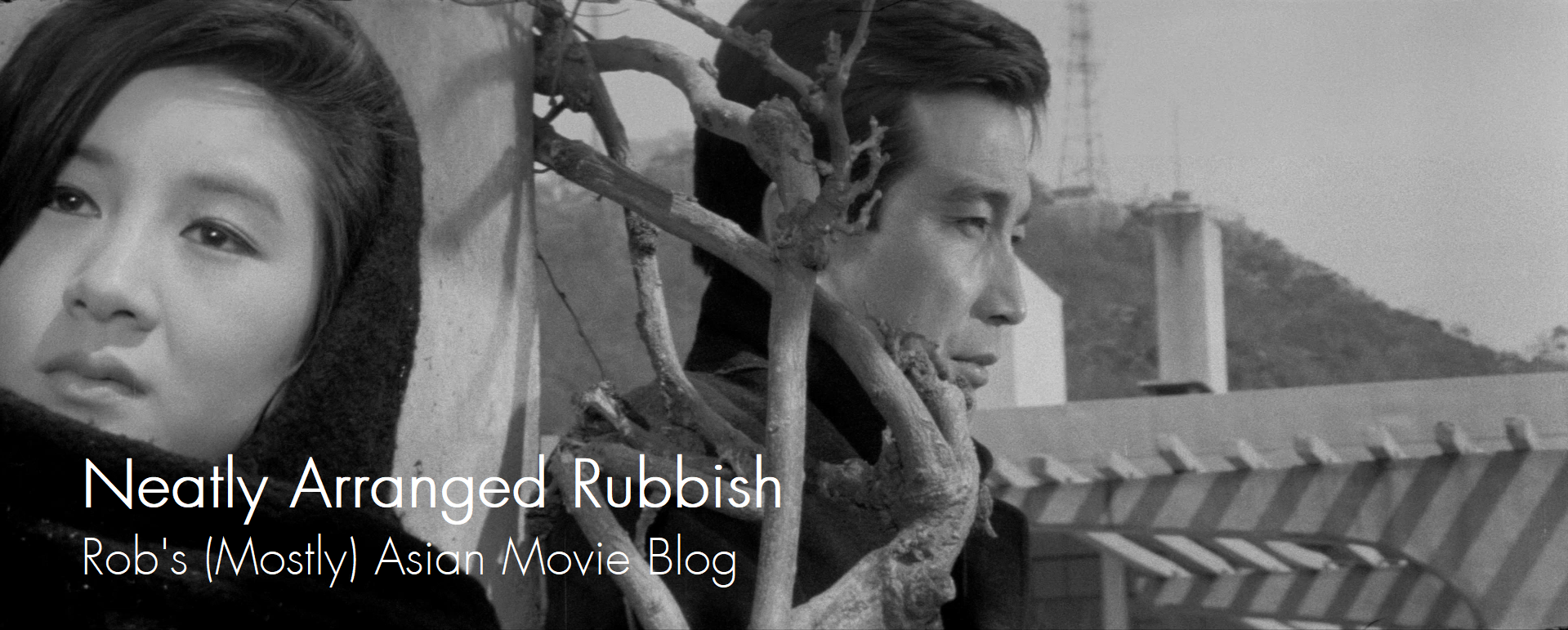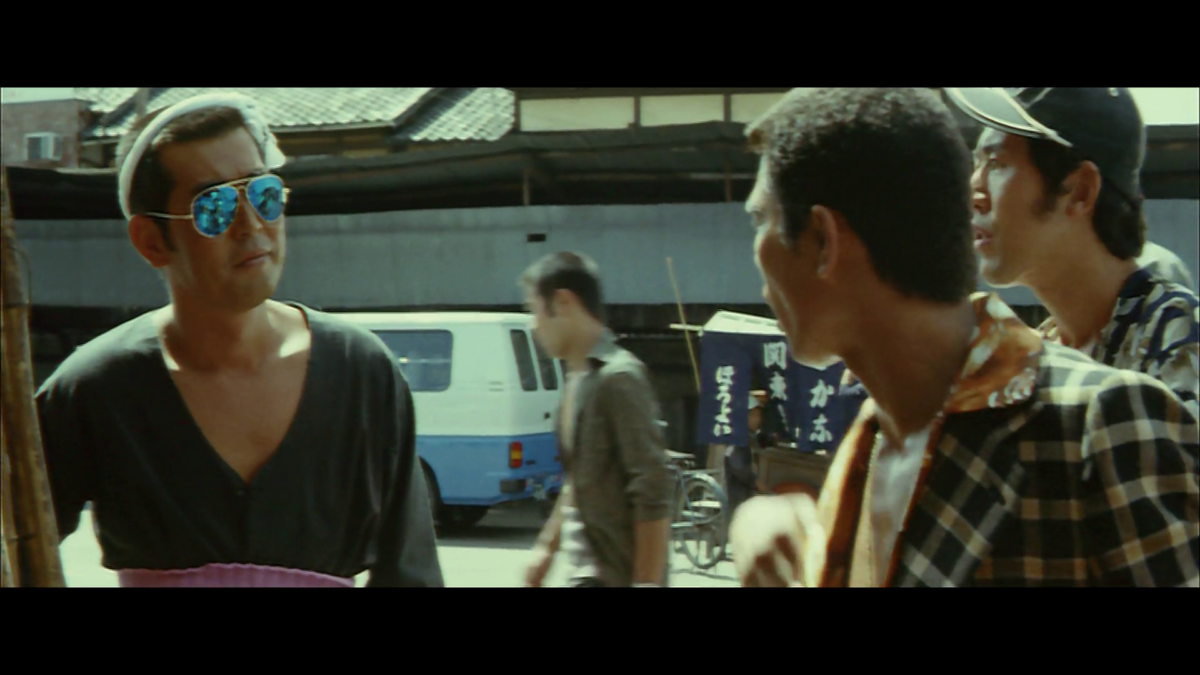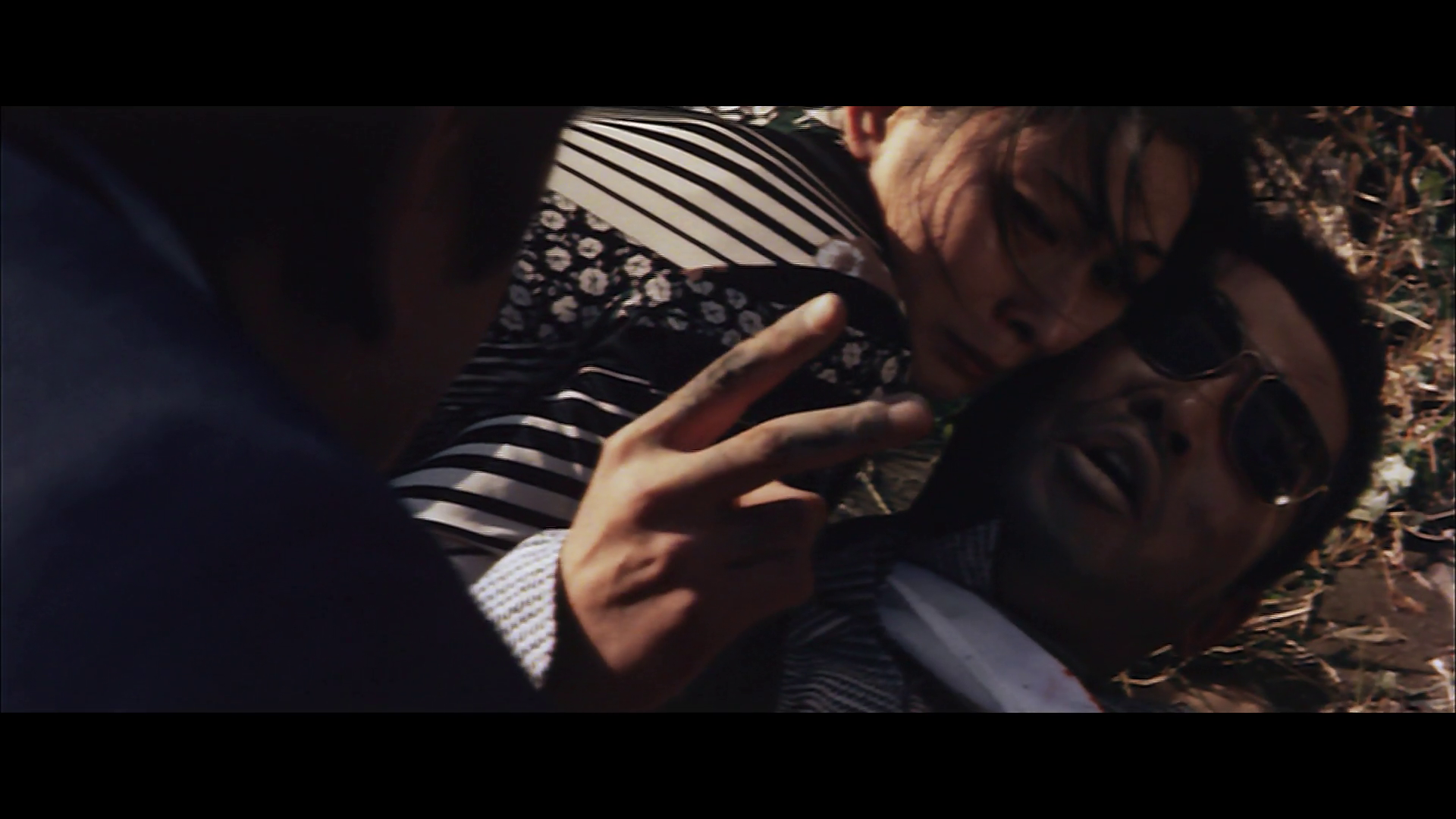Last Updated on September 29, 2020 by rob
Tough cop Kuroiwa (Tetsuya Watari) finds his investigations into a Yakuza group complicated by corrupt superiors and his own attraction toward gangster’s wife Keiko (Meiko Kaji). But after he befriends Iwata (Tatsuo Umemiya) – the man lined up to take control of Keiko’s gang – Iwata is murdered while Kuroiwa finds himself suspended, the result of the Chief of Police conspiring with loanshark Teramitsu (Kei Sato) to seize control. With his friend dead Kuroiwa busts into a meeting between Teramitsu and his cop buddies at police HQ to exact bloody revenge.
Vivid Fukasaku vehicle distinguished by a copper being the lead rather than a gangster, in a pacy, highly entertaining portrait of his supposed decline (I loved the scene in which Kuroiwa lounges in his high rise flat knocking back the whiskey and listening to Western rock music late into the night before the cops arrive to tell him off!) in which our protagonist’s corrupt superiors – nearly all of them doing deals with the Yakuza – make our hero seem downright pure by comparison. He, after all, just wants to beat the shit out of the bad guys while arresting them. Tetsuya Watari (wearing a wicked pair of shades and conveying his pent up frustration by repeatedly smacking his fist into the palm of his hand much to the annoyance of his superiors) is a most agreeable substitute for Bunta Sugawara and his affection for Meiko Kaji’s gangster wife is put across with that characteristic Fukasaku mixture of tough love and tenderness.
What’s compelling here is that despite his tough guy front Kuroiwa really feels for the suffering of those unfortunates – such as a pair of Yakuza footsoldiers ordered to take the rap for a shooting, or the mistress he’s supporting after he shot and killed the woman’s gangster husband – who are otherwise powerless in the criminal underworld. Even Kuriowa’s unlikely friendship with Iwata seems plausible because the two are such mirror images of each other. They’re both violent but they’re also loyal, uncomplicated and direct. That gets our sympathy especially because both men are at the mercy of bosses who are either corrupt and conniving or cowardly and ineffectual. When Kuroiwa and a fellow cop take a troublesome Yakuza into the police gymnasium to beat some long overdue sense into him the fun is rapidly curtailed by gutless superiors.
We’re shown a world in which the elderly Yakuza bosses have completely lost control of their younger recruits leaving an unscrupulous free for all – devoid of honour or humanity – in their wake. One of the running gags here is the spectacle of a senior Yakuza constantly threatening to kill all those who disobey him while everyone else just ignores the old fart. I really liked that the film doesn’t go down the route of depicting Kuroiwa as a bad apple in the cop barrel who finds his natural home with Yakuza thugs. It’s more heartfelt than that. With the exception of the bosses most everyone Kuroiwa comes into contact with is soaked in torment and misery. Even the seemingly formidable Keiko, who spins Kuroiwa a yarn about how she’s a half-breed Japanese/Korean who yearns to return to her homeland is ultimately revealed to be a junkie who’s been on the streets selling her body since she was 13. Fukasaku’s vigorous visual style also never ceases to fascinate and there are some tremendously evocative moments here.
For example I really liked the scene where our hero invites Keiko into his dark high rise flat as a sudden breeze comes through the open windows, ruffling the clothes that are hanging off washing lines strung back and forth across the apartment. It’s an image of utter, solitary desolation that indelibly renders Kuroiwa on the same level as all those wretched souls he’s taken pity on. It all adds up to a climax in which it’s not just the gangsters that need sorting but disgustingly corrupt cops and Kuroiwa’s just the man to do it. The film boasts the most amazing closing scene as a dying Kuroiwa is approached by one of his cop mates to whom our shot up hero responds by flicking the V’s at him! It’s a thrilling gesture of “You can all go Fuck Yourselves!” defiance that you feel Jimmy Cagney in his gangster prime would have loved to do if the Hays Code hadn’t been around to stop him. What’s more, our sympathies are totally with Kuroiwa by this point. One of Fukasaku’s best.



